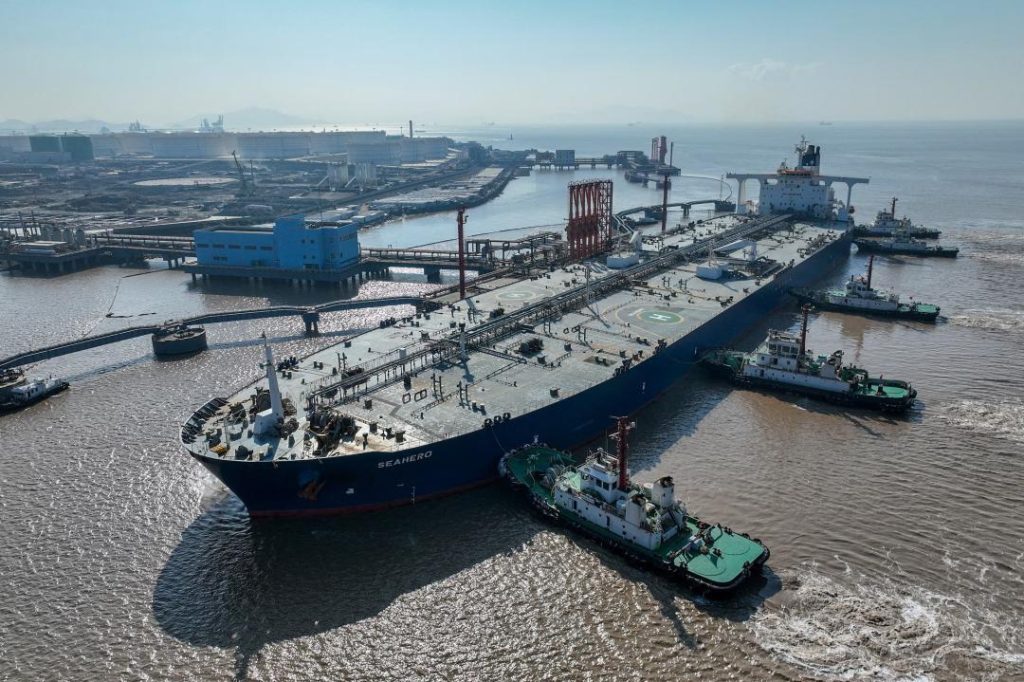
India Sends Diesel to China for 1st Time Since 2021 Amid US Tariffs & EU Sanctions: Report
In a significant development that highlights the complexities of global trade, India has sent a diesel cargo to China for the first time since 2021. This shipment of around 500,000 barrels of diesel from Nayara Energy, India’s second-largest refinery, is a rare instance of India exporting diesel to China, given the ongoing trade tensions between the two nations.
According to a report by Bloomberg, the diesel cargo was initially bound for Malaysia but made a U-turn towards China’s Zhoushan Island. This unusual change in course is attributed to the increasing demand for diesel in China, particularly in the power generation and industrial sectors.
The development comes amidst heightened tensions between the United States and India over tariffs and trade restrictions. In 2022, the US imposed 50% tariffs on Indian exports, including petroleum products, as part of its efforts to reduce the trade deficit. This move was seen as a retaliatory measure against India’s decision to impose higher duties on certain US goods.
Furthermore, the European Union has also imposed sanctions on Nayara Energy, citing concerns over its links to Russian oil refiners. The company, which is controlled by the Russian billionaire, Rostech CEO Sergey Chemezov, has been subject to EU sanctions since 2022.
Despite these challenges, Nayara Energy has found an unconventional route to export its diesel cargo to China. The company’s decision to divert the shipment away from Malaysia and towards Zhoushan Island is a testament to the flexibility and adaptability required in today’s global trade landscape.
The recent developments in the India-China trade relations are a far cry from the strained ties between the two nations in 2020. The border standoff between India and China, which began in April 2020, led to a significant deterioration in bilateral ties. The incident saw India impose various trade restrictions on China, including a ban on Chinese apps and a reduction in the import of Chinese goods.
However, the situation has improved significantly since then, with both nations engaging in diplomatic efforts to resolve their differences. The recent decision by India to send diesel to China is a positive step towards normalizing trade ties between the two nations.
The Indian government has been actively promoting the country’s oil refining sector, with a focus on increasing exports of petroleum products. The country’s refining capacity has increased significantly in recent years, with the government aiming to make India a major player in the global oil refining market.
The decision to export diesel to China is seen as a strategic move by Nayara Energy to capitalize on the growing demand for petroleum products in the Chinese market. China is the world’s largest consumer of diesel, with the fuel being used extensively in the country’s industrial and power generation sectors.
The development has significant implications for the global oil market, particularly in the context of the ongoing trade tensions between the US and China. The US has been seeking to reduce its dependence on Chinese oil imports, with the country’s oil production increasing significantly in recent years.
The situation has prompted concerns over the potential impact on global oil prices, with some analysts predicting a possible increase in prices due to the reduced demand from China. However, other experts have argued that the impact on global oil prices will be limited, given the flexibility and adaptability of the global oil market.
In conclusion, the recent decision by India to send diesel to China is a significant development in the global trade landscape. The move highlights the complexities of global trade and the need for nations to adapt to changing circumstances. As the world continues to navigate the challenges of trade tensions and economic uncertainty, the development serves as a reminder of the importance of flexibility and adaptability in international trade.






